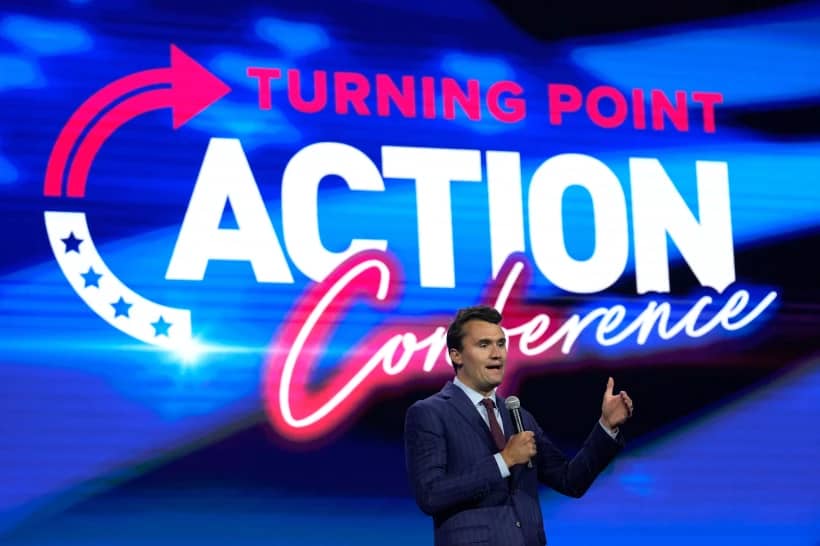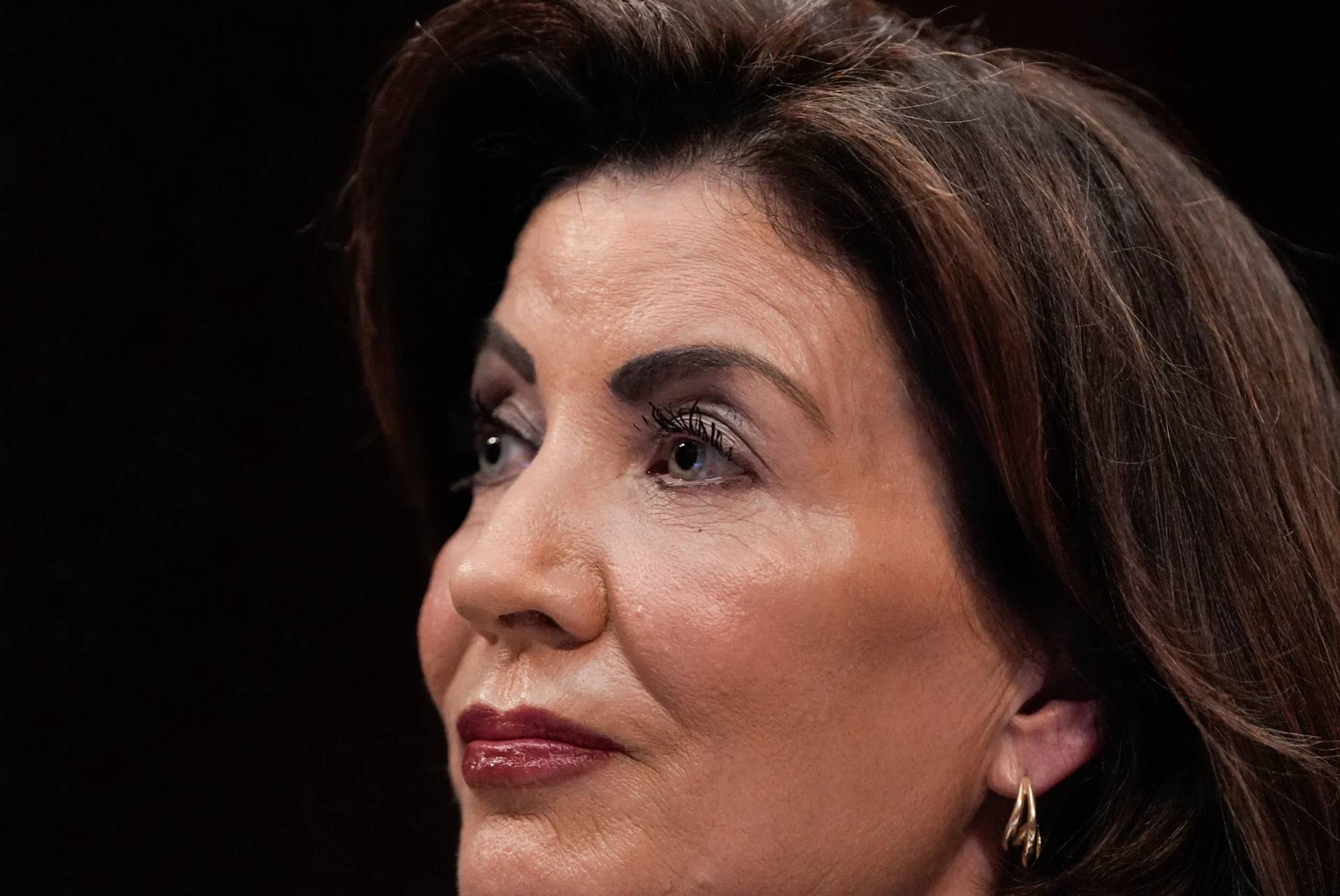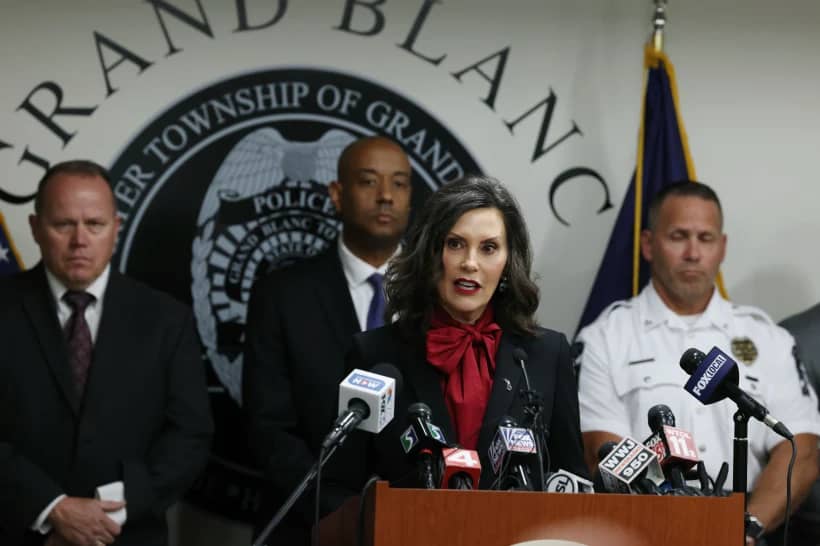To commemorate 2017 as the 100th anniversary of the birth of President John F. Kennedy on May 29, 1917, the U.S. Postal Service dedicated a Forever stamp honoring the nation’s first Catholic president on Presidents’ Day, on February 20, at the John F. Kennedy Presidential Library and Museum in Boston.
The new stamp features a 1960 photograph by Ted Spiegel, taken in Seattle, Washington, during the first week of Kennedy’s historic presidential campaign, just before the candidate gave a speech when he said, “I have called the challenge of the future the new frontier…”
In retrospect, the photo seems to depict a man in deep thought, looking forward to the future. The next year, Kennedy would be inaugurated as the nation’s 35th president, who at the age of 43 became the youngest person to serve in that office.
In his brief presidency, Kennedy issued a clarion call for public service embodied in programs like the Peace Corps, championed civil rights and NASA’s space program, urged nuclear arms control and later confronted the Soviet Union in the Cuban Missile Crisis.
As a candidate, he struck a controversial line in the separation of church and state to ease the concerns of the nation’s Protestants over the prospect of a Catholic becoming president.
The nation and the world mourned when Kennedy was struck down by an assassin in Dallas on Nov. 22, 1963, and three days later, his Requiem Mass was held at the Cathedral of St. Matthew the Apostle in Washington.
An iconic photo showing John F. Kennedy Jr. standing near the steps of the cathedral, saluting his father’s casket, captured the sorrow that swept the country. The little boy had turned 3 that day.
To mark the centennial of President Kennedy’s birth, the John F. Kennedy Center for the Performing Arts in Washington is planning a year-long celebration, including performances by the Alvin Ailey American Dance Theater and the Atlanta Symphony Orchestra.
The Kennedy Library will open a special exhibit in May featuring artifacts related to Kennedy’s presidency and his family life.
In the week that the new stamp was issued, Crux interviewed an historian, a history professor and a member of the Kennedy family about the president’s legacy to the nation and to U.S. Catholics.
“He thought large. He thought globally, of America as a great power in the world, that had a service to perform in the world, and he had a sense of mission about America’s place in the world,” said Maria Mazzenga, an education archivist and historian at the American Catholic History Research Center and University Archives at The Catholic University of America.
The CUA archives include a special artifact related to Kennedy – a marked-up copy of a 1956 speech he gave there when as a U.S. senator from Massachusetts, he received the university’s James Cardinal Gibbons Medal, its highest honor.
In that speech, Kennedy emphasized the importance of politicians putting partisanship aside to work together for the nation’s good, a message that Mazzenga said remains timely today.
Noting Kennedy’s founding of the Peace Corps, the historian said, “He had a very Catholic informed sense of helping people out of poverty…Catholic social justice tradition and ideals were really in the fiber of his being.”
That point was also underscored by Mark Shriver, Kennedy’s nephew, whose mother, Eunice Kennedy Shriver – one of the president’s sisters – founded the Special Olympics, and whose father, Sargent Shriver, was the Peace Corps’ founding director.
Mark Shriver, the author of the recent Random House book Pilgrimage: My Search for the Real Pope Francis, said the Kennedy siblings were raised with a strong sense that they had a responsibility to help build a better world by working for justice and carrying out “the Gospel call to help the poor and powerless, those on the margins of society.”
That vision has unfolded with the Peace Corps, which in its five and one-half decades of existence has sent out 225,000 U.S. volunteers to serve in 141 countries around the world.
In Sargent Shriver’s five years as the agency’s founding director, he developed programs in 55 countries, sending 14,500 volunteers to make a difference in the world.
The Peace Corps, said Mark Shriver, was envisioned and continues to be “an attempt to help the poor around the world with special projects, but also to learn from them.”
Eunice Shriver encouraged her brother to establish a presidential commission to study the needs of people with developmental differences.
“Mom was a relentless advocate…He (the president) listened to her and he worked with her,” said Mark Shriver.
When Kennedy established that presidential commission, he called on the nation to shine light and offer hope to children with intellectual disabilities who he said too often “live in the shadows.”
“It took political guts to recognize that and bring it into the political mainstream,” Mark Shriver said.
In 1968, Eunice Shriver would found the Special Olympics, which has grown into an international movement promoting not only athletic achievement, but also friendship with and understanding for the people with developmental differences.
Mark Shriver said an excerpt from Kennedy’s speech in the Academy Award nominated movie “Hidden Figures” about the role African American women mathematicians played in NASA’s space program reflects a lesson the president learned from his Catholic family, that life can be hard, but you should “push ahead for what is right.”
In the movie, a news clip shows Kennedy saying, “We choose to go to the moon in this decade and do the other things, not because they are easy, but because they are hard, because that goal will serve to organize and measure the best of our energies and skills…”
Shriver, who served as president of the Save the Children Action Network in Washington, said he wishes more of today’s politicians “would challenge us to move out of our comfort zones.”
Another of Kennedy’s enduring legacies was in becoming the first Catholic to be elected as the nation’s president.
“He broke open the gates, and no one’s ever shut them (since),” Mazzenga said, noting that when New York Gov. Al Smith, a Catholic, unsuccessfully ran for president in 1928, the Ku Klux Klan burned crosses in opposition to his candidacy.
“He (Kennedy) made it so no one can question whether Catholics can be president in this country,” the CUA historian said. “For the previous 170 years, that was not possible.”
But Kennedy’s reaching that distinction was not without controversy, even today.
About two months before election day in 1960, Kennedy spoke to the Greater Houston Ministerial Association, and to assuage Protestant fears about his candidacy, he said, “I believe in an America where the separation of church and state is absolute.”
Kennedy also said, “I am not the Catholic candidate for president. I am the Democratic party’s candidate for president who happens also to be a Catholic. I do not speak for my church on public matters – and the church does not speak for me.”
Fifty years after that speech, Archbishop Charles Chaput of Denver, who now leads the Archdiocese of Philadelphia, called Kennedy’s address “sincere, compelling, articulate – and wrong.”
He said that speech didn’t create, but helped build a trend of “walling religion away from the process of governance,” and the church leader expressed regret about how many of today’s Catholic politicians “live their faith as if it were a private idiosyncrasy.”
John McGreevy, the dean of the College of Arts & Letters at the University of Notre Dame, where he serves as a professor and teaches courses in American political and religious history, said of Kennedy’s Houston speech, “I think it struck too sharp a line between separation of church and state.
“We’re in a different moment now. There’s more of a sense that religious ideals can animate the public square,” said McGreevy, noting how the religious leaders in the civil rights movement helped demonstrate that to the nation.
Kennedy’s most remembered speech is his inaugural address from January 20, 1961, when he said, “The torch has been passed to a new generation of Americans,” and said perhaps his most quoted words, “And so my fellow Americans: Ask not what your country can do for you – ask what you can do for your country.”
Some would say the political idealism he encouraged, although perhaps diminished, still endures, flickering like the eternal flame at Kennedy’s gravesite at Arlington National Cemetery.
McGreevy noted that Kennedy promoted “a sense that public service was a noble calling” and said that message offered “an extraordinary idealism about public service that I worry we’ve lost.”
Kennedy concluded his inaugural address by saying, “With a good conscience our only sure reward, with history the final judge of our deeds, let us go forth to lead the land we love, asking His blessing and His help, but knowing that here on Earth, God’s work must truly be our own.”














